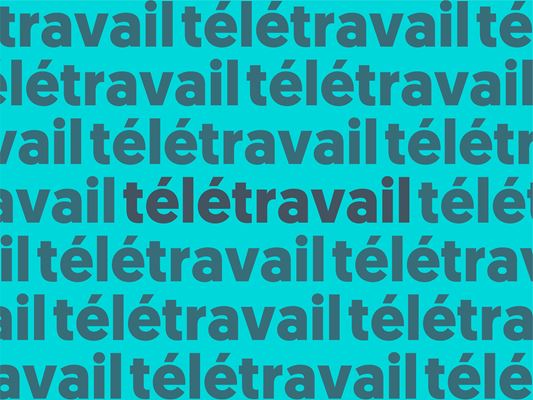
Managing change: “You need to develop a culture of learning”
An interview with Marie-Pier St-Hilaire
Business consultants have been saying it for a while: Those who know how to adapt to change always emerge as winners. But what should actually be done during a time when you’ve lost your bearings? Marie-Pier St-Hilaire, the CEO of Edgenda, a company specializing in knowledge and change management, presents a few points for consideration.
What should we do to remain productive when faced with a disruptive event?
At Edgenda, we’ve been saying for years that people and technology are stronger together than on their own. So you have to learn how to work with technology while cultivating personal and skill development routines.
When tackling the question of change management, it’s important to address things that are related to chronic stress, meaning those disruptions that are long lasting and contribute to everyday stress. To address this, you need to recreate your routines, and do so at three levels: the individual, the team and the organization.
Individually, you need to tackle your everyday routine and work-life balance. In order to beat stress, you have to put your routine back into your daily life, no matter how upside-down it may be. These little rituals are what enable you to stay grounded and keep stress and anxiety at an acceptable level. What’s also surprising is that research tends to show that you need to view this as a “new beginning.” You need to centre yourself and find your own relevancy depending on your circumstances. The more useful you feel, the more your stress levels will diminish. In concrete terms, you attain this goal by continuing to develop your skills, talking with your peers, reading up on subjects that are beyond your area of expertise. It’s an approach that’s reminiscent of the idea of Darwinian theory, where it’s not the strongest who emerge victorious, but those who adapt the best.
As a team, you need to review the rules of the game in order to have a functional unit that’s able to accept its vulnerability while simultaneously becoming a tribe. Trust is essential. Next you need to establish clear rules for communication, because the challenge isn’t learning how to communicate through technology, but the lack of closeness entailed by communication through technology. There’s a level of closeness that each person is accustomed to that provides relevance to what is accomplished and which often seems necessary for teams to perform. So you need to think about communication in way that will unify everyone and that handles the current situation as it stands.
Finally, at an organizational level, managers need to learn to foster a “culture of learning.” We’ve talked a lot in recent years about the culture of innovation, but first you need to learn how to allow yourself to do things differently with different ways of working. Creativity is what comes out of this, and thus the concept of the “culture of learning,” because what seems clear is that the greatest strength is learning how to constantly put yourself in the position of a learner without being chronically stressed. Once this instinct has taken root, a culture of innovation will appear automatically.
So you mean there’s something positive about this situation?
The organizations that learn how to come out the other side of the current situation will be the new leaders. Harvard University calls this the “new beginning.” The only thing that’s certain is that nothing will be like it was before. What will be established during the pandemic will allow us to advance in a different way. The connection to remote working that will be created won’t disappear, nor will our vulnerability, empathy, use of technology, digital solutions that will be established in retail sales… Remote working, ways of communicating and the use of technology will change. There are positive things to come out of this situation if you embrace these stressful times. What’s certain is that you can’t just stop—apathy is not an option. Our greatest strength is always learning how to learn.
What concrete actions should be considered?
We’re currently noticing, throughout all industrialized countries, that the shift to digital should have been more mature. Every company should do some soul-searching to identify what may be beneficial for its customers and employees, what would evolve their business model and how technology can contribute to those ideas. Personally, I recommend considering planning for changes based on your business model rather than your assets, which I call your “inheritance.” You need to ask yourself what you would do if you were starting your business in 2020, how it would be positioned and what its business model would be. Then you need to combine this idea with the assets you’ve built. When little companies emerge and beat out the big players, it’s often precisely because they’re not bogged down by an inheritance. That’s exactly what’s happening with grocery stores at the moment. While they should have been pushing their online sales and developing their offer, they continued to offer what they had in the past without daring to shake up people’s habits because they were growing. Companies bear the responsibility, in a way, of convincing consumers to change their habits. As a country, we were lazy to think that we could keep moving ahead so slowly.
Otherwise, those of us who train companies to undertake transformations have been saying the same thing for a while: The critical skills you need to lead a digital company aren’t all that many. We often think of e-commerce as being really complicated and expensive to set up, but today there are so many smaller solutions that are easy to adopt. What’s more complex is making up for a lack of skills. Many companies will need to learn about using office tools that will enable them to communicate better, amongst other things. Office 365 alone doesn’t really cost much, yet many Quebec businesses don’t have it.
In closing, what would you say to those people who are worried about the future?
Don’t be afraid to drive yourself and move ahead. I believe that we don’t have a choice anymore about whether to evolve, and those who know how to reinvent themselves will reap the benefits.
Want to learn more?
Read Marie-Pier St-Hilaire’s profile or discover the site Restons connectés


